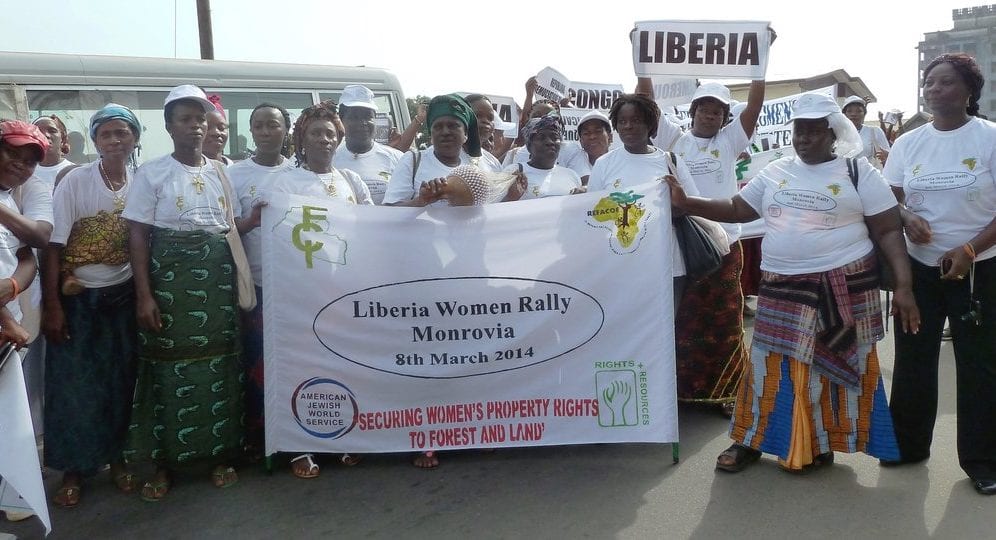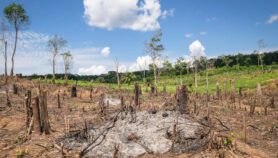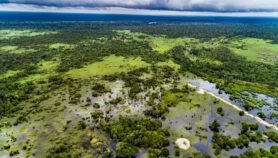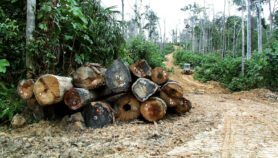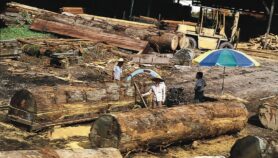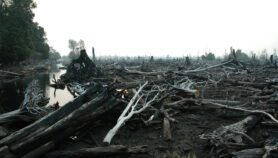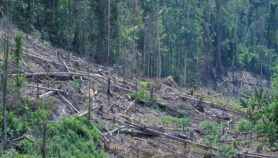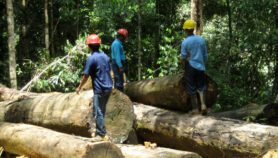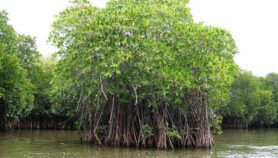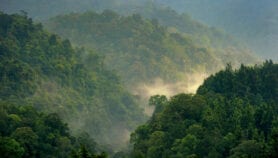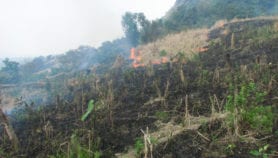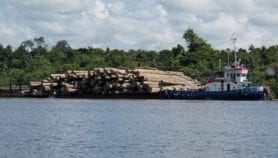By: Inga Vesper
Send to a friend
The details you provide on this page will not be used to send unsolicited email, and will not be sold to a 3rd party. See privacy policy.
[LONDON] Liberia’s government must do more to award land rights to forest dwellers to protect natural resources from exploitation and encroachment of palm oil plantations, warns a report published by a global coalition pushing for forest policy reform.
Forests should be maintained as a future economic resource, says the Rights and Resources Initiative (RRI) report on Liberia’s palm oil industry. Forests are valuable because of the carbon price of trees and the variety of genetic and scientific resources found in forested land, a panel discussing the report heard.
The panellists said local residents have proven to be the best managers of forest areas, and that their rights to access and use forests must be enshrined in international legislation.
They added that international actors, specifically the World Bank, should push for more stringent land rights and impose tougher standards on the palm oil industry.
“World Bank standards are the starting point for legislation all around the world,” said Andy White, the RRI’s coordinator.
Even if local people retain access to their forests, land rights need to be properly implemented to ensure forest stewards benefit from other types of forest use, the panel heard. This is because pharmaceutical companies increasingly look to African forests to find medical plants and the chemicals found in these plants that can yield innovative medicines and products.
“World Bank standards are the starting point for legislation all around the world.”
Andy White, RRI
“The exploitation of medical plants is a new thing for us. We still need to prepare for it,” said panel member Peter Kitelo, a member of the Ogiek people, who are involved in a legal battle with Kenya’s government to retain access to Mount Elgon forest, their home.
“We are thinking about bylaws,” he told SciDev.Net. “Even if people just come to collect a few plant materials for research, the benefits of that need to be taken care of.”
The RRI report, which was launched in London this week (4 February), compares Liberia’s budding palm oil industry with the situation in Indonesia, where a lack of land management rights has caused large-scale deforestation.
The report says that countries with secure land rights for indigenous people, such as China and South Korea, have fewer problems with deforestation and see faster improvements in rural living standards.
But in Liberia, government action to protect inhabited forests and ensure that local people take charge of forest stewardship has been limited, the panel heard.
Panel member Silas Siakor, the founder of Liberia’s Sustainable Development Institute, said Liberian politicians have neither learned from the experiences in Indonesia and Malaysia, nor have they verified a land rights law proposed in 2013.
Siakor said this problem was magnified by the Ebola outbreak, which has preoccupied local communities for the past year. “The Liberian government is giving more land to palm oil corporations than ever before,” he said. “When Ebola-hit communities, in their state of weakness and without lawyers, negotiate with big companies, they get a bad deal.”
In the case of Indonesia, forest inhabitants gave up their rights to benefit directly from palm oil production and associated benefits, such as taxes, infrastructure and right of residence. This happened because many local people lacked the information and legal representation to ensure their rights were represented and some thought they would profit from the palm oil industry, the report found.
The report urges Liberia to reduce production of this volatile commodity to a minimum. It says that palm oil prices have dropped by more than 40 per cent since 2011 and contributed less than two per cent to Indonesia’s GDP (gross domestic product) even during the palm oil price peak of 2007-2009.


